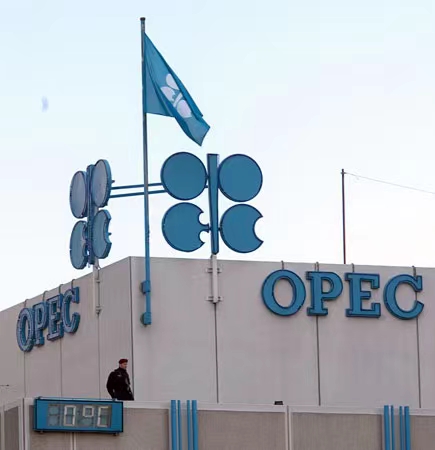
The Organization of the Petroleum Exporting Countries (OPEC) has always played a pivotal role in the global energy field. Each of its decisions and adjustments may trigger huge fluctuations in the global energy market and have a profound impact on the economy, politics and even global climate policies of various countries. In recent years, OPEC has made a series of major adjustments. These adjustments not only reflect the complex situation of the current energy market, but also indicate the future development direction.
The background of OPEC's major adjustments stems from profound changes in the global energy landscape. With the rapid development of emerging economies, energy demand continues to grow. At the same time, advances in renewable energy technology are gradually changing the structure of energy supply. In this context, OPEC faces multiple pressures to maintain market balance, protect the interests of member states, and respond to the challenges of global energy transition.
One notable adjustment is the change in output policy. In the past, OPEC has affected global oil prices mainly by controlling the oil production of member countries. However, in recent years, OPEC has become more flexible and cautious in adjusting output due to increased market uncertainty. In response to the slowdown in global economic growth and declining energy demand, OPEC has repeatedly reached agreements with non-OPEC oil-producing countries to reduce production to stabilize oil prices. The strengthening of this cooperation mechanism has, to a certain extent, enhanced OPEC's ability to regulate the global oil market.
On the other hand, OPEC is also actively promoting the energy diversification development of member countries. Realizing the unsustainability of relying solely on oil resources, OPEC member states have increased investment and development in natural gas, renewable energy and other fields. This will not only help reduce the dependence on the oil economy, but also create new growth points for the energy industry of member countries under the general trend of global energy transformation.
In terms of technological innovation, OPEC has also continued to increase investment. By developing more efficient oil extraction and processing technologies, we can improve the utilization rate of oil resources and reduce production costs. At the same time, we actively explore the integrated development model of petroleum and renewable energy, providing new ideas for the construction of the future energy system.
OPEC’s major adjustments also have broad implications for the global economy. Stable oil prices are crucial to stable growth of the global economy. OPEC has avoided significant fluctuations in oil prices to a certain extent through production control and other means, providing a relatively stable energy environment for global economic recovery. However, OPEC's decision may also cause some countries that rely on oil imports to face pressure from rising energy costs, thus affecting their economic development and inflation levels.
At the political level, OPEC’s adjustments have also triggered energy diplomacy games among countries. Countries rich in oil resources have strengthened cooperation through the OPEC platform to enhance their voice in the global energy market. Oil-importing countries are actively seeking to diversify their energy supply and reduce their dependence on OPEC oil to ensure their own energy security.
OPEC's adjustments are also of great significance for environmental protection and response to climate change. Although oil remains its main energy product, OPEC has gradually realized the inevitability of energy transition and has supported global efforts to combat climate change to a certain extent. By promoting energy diversification and technological innovation, OPEC is expected to play a positive role in reducing carbon emissions.
However, OPEC's major adjustments also face some challenges and uncertainties. Changes in the global energy market are difficult to predict, and breakthroughs in emerging energy technologies may have a greater impact on the traditional oil market. In addition, the coordination of interests among OPEC members is not always smooth, and there may be differences in production allocation and investment decisions.
Looking ahead, OPEC will continue to play an important role in global energy markets. However, its adjustment strategy needs to be more flexible and adaptable to market changes, strengthen cooperation with other energy organizations and countries, and jointly respond to the challenges brought about by the global energy transition. At the same time, OPEC also needs to find a balance between safeguarding the interests of member states and promoting sustainable development of global energy, and make positive contributions to building a more stable, diversified and sustainable global energy system.
In summary, OPEC’s major adjustment is an important event in the global energy sector, with far-reaching and complex implications. We should pay close attention to its development trends in order to better respond to changes in the global energy market and achieve sustainable development of the economy, environment and energy.

报告显示,中国电力投资加速增长,预计2024年电网基建投资将超过5300亿元。
近日,市场迎来了一则引人注目的消息:工业巨头3M公司(MMM.N)在本周五公布了其季度业绩报告,随后股价飙升至近两年来的
最近,外媒给OpenAI算了笔账,今年可能要血亏50亿美元。
近日,巴黎奥运会和世界铁人三项协会联合发布了一项重大决定,宣布因塞纳河水质污染问题,原定于近期进行的奥运会铁人三项首次下
当地时间7月18日,法国巴黎发生了一起令人震惊的持刀袭警事件。
近期,一则重大消息在国际舞台上引起轩然大波,马来西亚宣布加入金砖国家。
调查发现,互联网和智能手机的使用干扰了韩国近五分之一学生的生活。